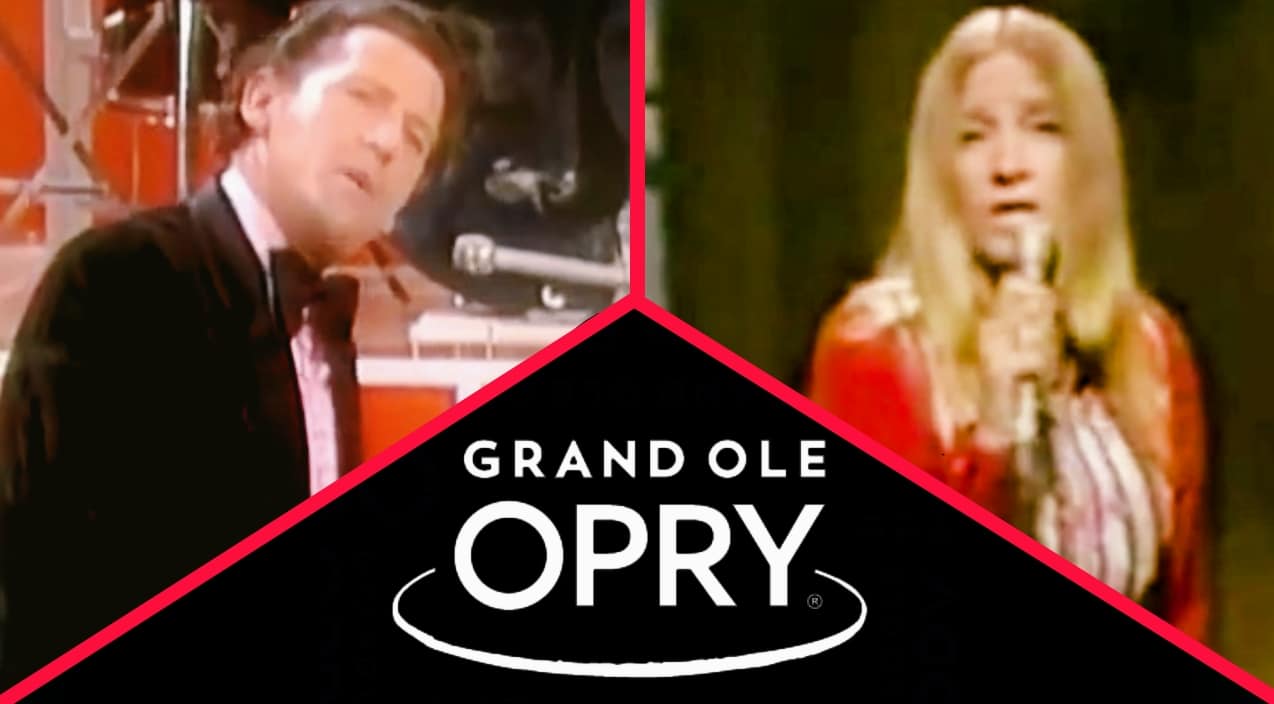Country Stars Who Once (Or Still Are) Banned From The Opry
For decades, most country music singers powered through their careers with the same goal in mind…to sing on the Grand Ole Opry stage. Beyond that, artists aspire to one day prove their worth to the Opry so they can join its elite list of members.
The Opry has welcomed a number of new inductees in recent years, including Crystal Gayle, Dustin Lynch, and Chris Young.
But some past Opry members and performers have gone against its wishes. In doing so, they’ve found themselves banned from its famous stage.

Following Elle King’s “disrespectful” performance at the Opry for Dolly Parton’s 78th birthday, many fans wondered if the Opry ever hands out bans.
It turns out, the Opry has banned a small number of artists over its extensive history. You likely won’t be surprised to hear the names of some of the banned artists…but others will come as a shock.
Check out those names in our list below!
Jerry Lee Lewis
While “The Killer” was a rock and roll artist at heart, he was an honored member of the country music community too. So it only made sense when, in January 1973, the Opry asked him to come perform on their famous stage.

Colin Escott explains in A Half Century of Hits that Lewis agreed to the performance despite having a sour taste for the Nashville community:
“Lewis was never truly accepted in Nashville,” Escott wrote. “He didn’t move there and didn’t schmooze there. He didn’t fit in with the family values crowd. Lewis’ family values weren’t necessarily worse, but they were different.”
Wanting to rebel against those values, Lewis took to the Opry stage and broke one of its cardinal rules when he cursed just a few minutes into his performance.
1973 Jerry Lee Lewis makes his Grand Ole Opry debut, breaking two promises: he won't sing rock & roll, and won't swear. The set list includes "Another Place, Another Time," "Johnny B. Goode," "Great Balls Of Fire" and "Whole Lotta Shakin' Going On" pic.twitter.com/1aHLgvDOdR
— Terry Jennings (@TerryJennings33) January 20, 2018
He then broke another huge rule by playing a 40-minute set, when at the time artists remained restricted to playing just two songs.
To top it all off, Lewis was asked not to play any of his rock and roll tunes, but he completely ignored that request.

While the Opry never technically banned Lewis, that performance certainly didn’t go over well. That performance marked the first, and last time he ever played there.
Dierks Bentley

The reason behind Dierks Bentley’s ban from the Opry may be one of the most surprising on this list. Unlike the other artists we’ll mention, Bentley’s Opry ban actually occurred BEFORE he became famous.
So how did Bentley manage to get in the Opry’s bad graces if he never performed there before? Well, before his career took off, he worked as a researcher at a TV station called The Nashville Network.
Since he worked close to the Opry, Bentley often snuck over there when he finished work, and would find his way backstage to hang out with the artists.
The Opry eventually caught on to what Bentley was doing, and made him leave, telling him to never come back. But his ban didn’t last for long.
After Bentley became famous, the Opry wasted little time in recognizing his talent. He joined the Opry as a member in 2005.
Skeeter Davis

As one of the leading stars of her era, it was no surprise that the Opry asked Skeeter Davis to be a member. But it did come as a surprise when she received a ban from performing there for an entire year.
The reason why? She decided to speak her mind after police arrested 11 members of Bill Lowrey’s “Christ Is The Answer Crusade” when they marched through Nashville days prior to her Opry appearance on December 8, 1973.
Davis made it clear she did not approve of the officers’ actions. She spoke her mind prior to her Opry performance, saying the following:
“I didn’t ask our manager, but they’ve arrested 15 people just for telling people that Jesus loves them. And that really burdened my heart, so I thought I would sing you all this song.”
The Opry felt that Davis went too far, and suspended her membership in addition to banning her from performing.
But the ban lifted a year later, and she came back to perform many times until she made her last Opry appearance in 2002. She died two years later in 2004.
Neko Case

While Neko Case is primarily known for her work in the rock genre, some of her work shows influences from country, folk, and Americana. The Opry apparently felt she had a strong enough connection to country music in 2001, when she was invited to play at the Grand Ole Opry Plaza Party.
The outdoor concert took place in July. If you’ve ever been to Tennessee in July, you know how hot it can get. It made matters worse that the stage was black and had a barbecue pit next to it.
Mid-performance, Case felt the heat starting to make her woozy. She asked for some water or the chance to take a short break. But her requests were ignored. Growing dizzy and fearing she a heatstroke, a desperate Case removed her top in an attempt to cool down.
Neko Case Talks New Box Set, DIY Days, Getting Kicked Off Grand Ole Opry https://t.co/8Sgogimuei pic.twitter.com/wRyCkpYMEq
— Geoff De Weaver 🇺🇸🦅 (@geoff_deweaver) November 11, 2015
Even though Case kept her bra on, the Opry didn’t approve. They banned her for life. To date, she is the only living artist under a lifetime ban from the Opry.
Johnny Cash

You likely aren’t surprised to hear that the Opry once banned “The Man in Black.” In fact, his Opry ban may be the most famous of all featured on this list. It was even portrayed in a scene in the hit biopic about his life, Walk the Line.
Cash was the first member inducted into the Opry in 1956, and frequently returned to the venue. But just nine years later, he found himself banned from ever playing there again.
Why did the Opry ban Johnny Cash? Well, he had a bit too much to drink prior to one show in 1965. Because of this, he ended up bashing out the stage lights with a microphone stand in a fit of rage.
The Opry didn’t have a favorable opinion of his behavior, and handed down a ban.

Cash did not perform at the Opry for three years, though they eventually welcomed him back.
He quickly found himself back in their good graces, and started hosting their television specials just one year after his ban was lifted.
Hank Williams

If you’ve been a longtime country music fan, you’ve likely heard about Hank Williams’ dismissal from the Grand Ole Opry. But have you ever heard the reason why the country music icon had his membership suspended and never reinstated?
Everyone knows that Williams dealt with addiction throughout his life. A radio station fired him in 1942 after he came to work under the influence on more than one occasion.
For that same reason, the Opry banned Williams and suspended his membership in 1952.
When he did turn up to perform (he frequently missed shows with no explanation), he tended to be under the influence. The Opry did not tolerate such behavior, and bid “farewell” to him.
He died just a few months later. Ever since, fans have begged for the Opry to reinstate his membership. Although they never have, the Opry frequently recognizes Hank’s music and legacy.
There you have it folks…those are a few artists who have been banned from the Opry for a whole array of wild reasons.
You may have heard about Williams’, Cash’s, and maybe even Lewis’ bans, but what about some of the others? Who were you most surprised to see on this list?

